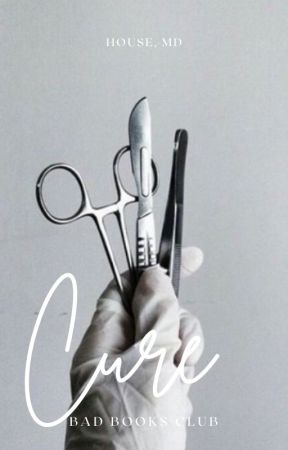The fluorescent lights of the conference room buzz faintly as I skim over the patient's chart. House is sitting across from me, sprawled out in his usual way.
"We're not just playing spectators," House says, tapping the table with his pen for emphasis. "The second Dr. Handshake over there screws up, we're the backup plan."
I glance up, arching an eyebrow. "You mean the surgical specialist with thirty years of experience? I'm sure he'll love hearing that."
House smirks, flipping the chart shut with one hand and leaning back in his chair. "Thirty years of experience doesn't make you an expert in this. Our guy has a rare case of Gorham-Stout disease. How many disappearing bones do you think he's seen before breakfast?"
He has a point. The patient's skeletal system is basically disintegrating—a rare condition that's left them in a precarious state. The surgery is a desperate attempt to stabilize their spine, but one wrong move and the damage could be irreversible.
I sigh, leaning back in my chair and running a hand over my temple. "So we're glorified insurance policies. Got it."
"No," he says, with a touch of mock exasperation. "We're the only thing standing between our patient and a wheelchair. Or worse."
His words settle over me. "You think Dr. Nash will listen if we step in?"
"Doesn't matter," House replies, standing up and grabbing the chart. "He doesn't have a choice. We're going in there because we know more than he does. End of story."
I roll my eyes but stand up as well, grabbing my gloves and mask from the counter. Today's surgery requires me to be fully scrubbed in, which isn't typical for my role. The blue scrubs feel strange, like a costume I don't quite fit into.
House glances at me as I adjust the mask around my neck, his eyes lingering for just a beat too long. "You look pretty," he says casually, like it's an afterthought.
I blink, caught off guard. The scrubs are loose, shapeless, and entirely unflattering, but his tone doesn't leave room for argument. I laugh softly. "Thanks. I wore it just for you."
His smirk deepens, that familiar glint in his eye. "You don't have to wear anything for me."
The words hang in the air for a moment, and I feel my face flush despite myself. I quickly turn away, focusing on the checklist in front of me. He's always like this—testing, teasing, seeing just how far he can push. And I hate that it works.
"Should we head to the OR?" I ask, my voice more brisk than I intended.
"Lead the way," he says.
Gorham-Stout disease isn't something you see every day. It's so rare that most doctors only know about it from textbooks—if that. It's often called "vanishing bone disease" because, well, that's exactly what happens. For reasons we don't fully understand, the body starts breaking down and absorbing its own bone tissue, like it's decided it doesn't need a skeleton anymore.
The disease doesn't just stop at one spot, either. It can spread, destroying bones in random parts of the body and leaving patients with pain, fractures, or worse—organs that lose the protection of the bones around them. In our patient's case, it's attacking their spine, which is already a delicate structure to begin with.
The surgery today is about stabilizing that part of their skeleton. Dr. Nash is implanting a titanium rod along the affected vertebrae to prevent further collapse. The challenge is, we're working with a spine that's essentially crumbling in real time. If he miscalculates, even by a fraction, it could mean nerve damage, paralysis, or worse.

YOU ARE READING
Cure- House, MD
FanfictionDr. Evelyn Moss never expected her career to take her from sunny Orlando to Princeton-Plainsboro, working alongside the infamous Dr. Gregory House. Known for his impossible cases and even more impossible personality, House is everything Evelyn was w...
